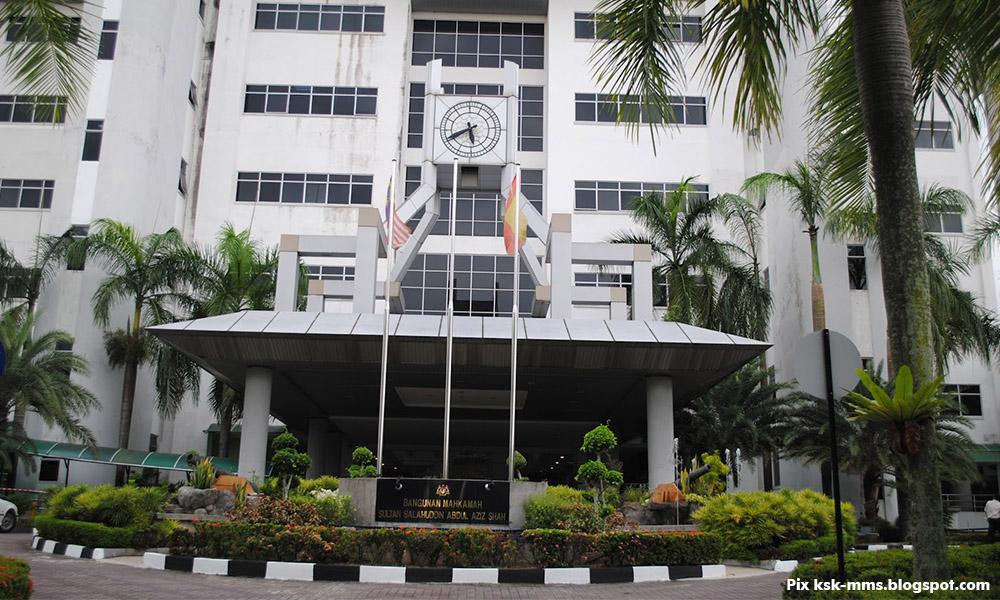Kedah Menteri Besar Muhammad Sanusi Md Nor succeeded in a bid to transfer his sedition case from the Selayang Sessions Court to the Shah Alam High Court.
High Court judge Aslam Zainuddin this morning allowed the PAS leader's transfer bid.
Previously, the prosecution objected to the move, contending that the Sessions Court is more than capable of hearing the two sedition charges - which they claimed do not involve difficult, complex or extraordinary issues of law.
The full trial against Sanusi was scheduled to begin on Monday next week.
However, with today's ruling, the full trial before the lower court will not proceed.
Earlier, during the High Court hearing of the transfer bid, lead defence counsel Awang Armadajaya Awang Mahmud submitted that Sanusi's case ought to be heard by the High Court as it involved the potentially complex legal issue involving the nature of the sedition charges.

The lawyer pointed out that Sanusi's charges were framed under Section 4(1)(a) of the Sedition Act, which deals with the offence of committing an act which has a “seditious tendency”.
He argued that the High Court is able to analyse the potential issue of interpretation of the phrase seditious tendency, noting the matter may not be as straightforward as other sedition cases.
Awang Armadajaya told Aslam that this would ensure Sanusi get a fair trial, due to any appeal by the prosecution or the defence team can go up to the Federal Court.
The lawyer pointed out this would not be possible if the sedition trial was heard and concluded at the Sessions Court, then any appeal would stop at the Court of Appeal, which does not have the same authority to decide on legal issues as the Federal Court.
In Malaysia, there are only two tiers for appeal, whereby any appeal arising from a Magistrates’ or Sessions Court decision would have the High Court and then the Court of Appeal as final arbiters for appeal.
By contrast, an appeal arising from a trial decision by a High Court would go through the Court of Appeal and finally, the Federal Court.
In judicial practice, a Court of Appeal is bound by any legal precedents set by the Federal Court, while the latter has the full authority to potentially make new legal precedents - such as sedition cases - that would bind lower courts.
Awang Armadajaya submitted that such case transfers are allowed as fair trial is not just a requirement but perceived to be so by the public.
‘Sessions Court is capable’
However, deputy public prosecutor Masri Daud countered that the Sessions Court is more than capable of deciding on any issues that arise from the sedition case.
The prosecutor pointed out that sedition law is settled, and lower courts can make references to multiple case laws from the High Court, Court of Appeal, and Federal Court.
On July 18 last year, before the Selayang Sessions Court, Sanusi claimed trial for the two sedition charges linked to his ceramah seven days earlier.
Both charges accused him of uttering words that had the tendency to incite disloyalty against a ruler.
According to the first charge, Sanusi allegedly said the Kedah sultanate was the only one in the country with uninterrupted lineage and that the Kedah ruler would not have appointed Amirudin Shari as menteri besar to head the state’s administration.
According to the second charge, Sanusi purportedly questioned if the Yang di-Pertuan Agong had indeed decreed that a unity government be formed after the parliamentary election in November 2022.
The Jeneri assemblyperson was alleged to have committed the offences around 11pm in Taman Selayang Mutiara, Selangor, around 11pm on July 11, 2023. The charges were framed under Section 4(1)(a) which criminalises acts of seditious tendency.
Sanusi can be jailed for up to three years, fined up to RM5,000, or both for each offence.

No comments:
Post a Comment
Note: Only a member of this blog may post a comment.